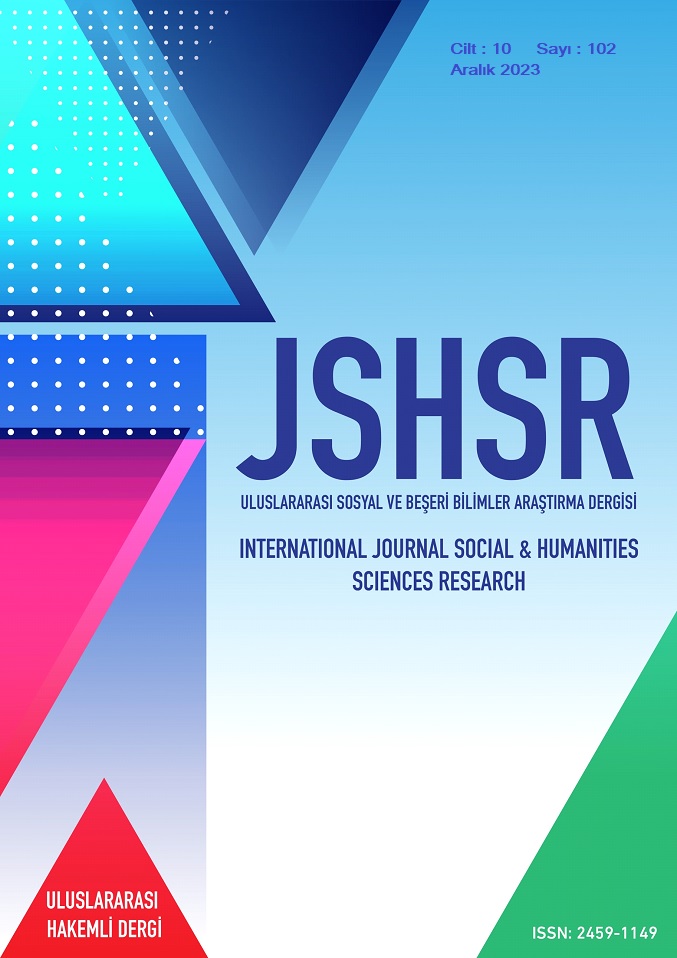Relationship Between Childhood Obesity and Social Work: Prejudice Discrimination Peer Bullying
DOI:
https://doi.org/10.5281/zenodo.10431524Keywords:
Childhood Obesity, Biopsychosocial Approach, Social Work, Prejudice-Discrimination, Peer BullyingAbstract
Obesity is a disease that negatively affects millions of people around the world. This disease, which causes many people to experience biological, physical, psychological, emotional, social and economic problems in terms of its consequences, is one of the most discussed diseases in recent years both in the world and in our country. Every year, millions of people apply to obesity diagnosis and treatment centers in the world and in our country for treatment. It is not possible to evaluate obesity only from a medical perspective and discuss only its medical consequences. Obesity is a health problem that can occur at any age; However, childhood obesity is a very important problem due to the biopsychosocial problems it causes both in childhood and adulthood. Obesity that occurs in childhood is a social problem that can lead to serious changes and problems in the lives of both the child and the family. When evaluated in the context of its causes and consequences, it is possible to treat childhood obesity with a multidisciplinary and holistic perspective. In this context, not only medical approaches to childhood obesity but also psychosocial approaches need to be discussed. This review study aimed to make a conceptual and theoretical evaluation of childhood obesity. The purpose of this review study is to examine the relationship between the social work discipline and the obesity problem, which is a health problem that negatively affects more and more children every year in the world and in our country, through the problems children experience due to obesity.
References
Balcıoğlu, İ. ve Başer S.Z. (2008). Obezitenin psikiyatrik yönü, Türkiye’de sık karşılaşılan psikiyatrik hastalıklar sempozyum dizisi, 62:341-348.
Bronfenbrenner, U. (1979). The Ecology of Human Development: Experiments by Natüre and Design. MA: Harvard University Press.
Brown, DB. (2011). About obesity, International Obesity Task Force.
Campos, P. (2004). The obesity myth. Why America’s obsession with weight is hazardous for your health. New York: Gotham Books.
Campos, P., Saguy, A., Ernsberger, P., Oliver, E., & Gaesser, G. (2006). The epidemiology of overweight and obesity: Public health crisis or moral panic. International Journal of Epidemiology, 35 (1), 55-60.
Deleş, B. (2019). Çocukluk çağı obezitesi, Hacettepe Üniversitesi Sağlık Bilimleri Dergisi.
Dündar, C. ve Öz, H. (2011). Obesity- related factors in Turkish school children. Department of Health, Faculty of Medicine, Ondokuz Mayıs University.
Duyan, V. ve Özbesler, C. (2009). Okul ortamlarında sosyal hizmet, Eğitim ve Bilim Dergisi, 34(154).
Elliot, C. (2007). Big persons, small voices: On governance, obesity, and the narrative of the failed citizen. Journal of Canadian Studies, 41(3), 134-149.
Friedman, R.R.and Puhl R.M. (2012). Weight bias a social justice issue a policy brief. Rudd Report Weight Bias. 1-12.
Jones, D.C., Newman, J.B., & Bautista, S. (2005). A three-factor model of teasing: th influence of friendship, gender, and topic on expected emotional reactions to teasing during early adolescence. Social Development 14(3), 421-439.
Kilgore-Bowling, G. (2014). Deconstructing fat: A review of killer fat: Media, Medicine, and Morals in the American "Obesity Epidemic," by Natalie Boero. [Review of the book Killer fat: Media, medicine, and morals in the American “obesity epidemic” by Natalie Boero. Fat Studies: An International Journal of Body Weight and Society, 3(1), 61-64.
Kilgore-Bowling, G. (2017). The impact of attıtudes and beliefs about fat on social work Educatıon In Appalachıa: An Exploratory Study. University of Kentucky.
Koroni, M., Fotoni, G.A., Roussi-Vergou, C., Zafıropoulou, M., & Piperakis, S. (2009). The stigmatization of obese in children. A survey in Greek elementaryschools. Department of Pre-School Education, University of Thessaly, Volos, Greece.
Kurtz, D. P. (1988). Social work services to parents: Essential to pupils at risk. Urban Education. 22, 444-459.
Margulies, A.S., Floyd R.G., & Hojinski R.L. (2007) Body size stigmatization: an examination of attitudes of african american preschool-age children attending head start. Journal of Pediatric Psychology 33(5), 487-496.
Miyairi, M., Reel, J.J. (2011). Combating weight bias among adolescents in school settings: a sport and exercise psychology perspective. Journal of Physical Education, Recreation&Dance (JOPERD), 82-8: 50-53.
Öğülmüş, S. (2006). Okullarda şiddet ve alınabilecek önlemler. Eğitime Bakış Dergsi, 2(7), 16-24.
Özbesler, C., Duyan, V. (2009). Okul Ortamlarında Sosyal Hizmet. Eğitim ve Bilim Dergisi, 154, 17-25.
Pişkin, M. (2002). Okul zorbalığı: tanımı, türleri, ilişkili olduğu faktörler ve alınabilecek önlemler. Kuram ve Uygulamada Eğitim Bilimleri Dergisi, 2(2),531-562.
Puhl, R. M., and Heuer, C. A. (2009). The stigma of obesity: A review and update. Obesity, 17, 941-964.
Puhl, R. M., and Latner, J. D. (2007). Stigma, obesity, and the health of the nation’s children. Psychological Bulletin, 133(4), 557-580.
Puhl, R.M., Luedıcke, J., & Grılo, C.M., (2014). Obesity bias in training: attitudes, beliefs and observations among advanced trainees in professional health disciplines. Obesity, 22:,1008–1015.
Spicker, P. (2011). Stigma and Social Welfare. https://www.spicker.uk/books/Paul%20Spicker%20-%20Stigma%20and%20Social%20Welfare.pdf
Tezcan, B. (2009). Obez bireylerde benlik saygısı, beden algısı ve travmatik geçmiş yaşantılar. [Uzmanlık Tezi], Bakırköy Prof. Dr. Mazhar Osman Ruh Sağlığı ve Sinir Hastalıkları Eğitim ve Araştırma Hastanesi.
Downloads
Published
How to Cite
Issue
Section
License
Copyright (c) 2023 INTERNATIONAL JOURNAL OF SOCIAL HUMANITIES SCIENCES RESEARCH

This work is licensed under a Creative Commons Attribution 4.0 International License.


